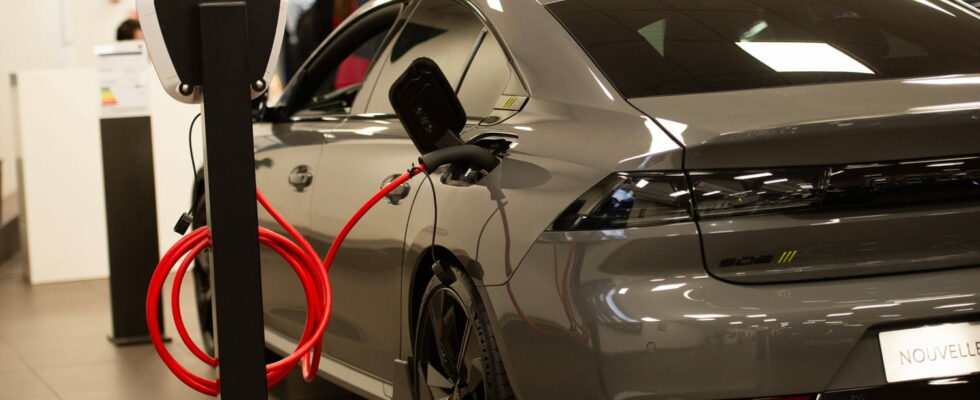Sales of electric cars are plummeting in several European countries.
Could France be the tree that hides the forest of the electric car market? Electric models have sold well since the beginning of the year, representing 17.6% of new car sales in France over the period from January to May 2024, or 2% more than in 2023.
Among the best-selling electric models, we find the Peugeot e-208, the Tesla Model Y or the small city cars Fiat 500 and Renault Twingo. Electricity, however, remains far from thermal with 32.6% of sales for gasoline models (and 7% for diesel which continues to fall).
But this good health of the French market hides a completely different reality in Europe. According to figures from the ACEA (European Automobile Manufacturers’ Association), sales of electric cars have fallen by 12% on the continent, with a market share falling to 12.5% in May.
It is especially in Germany, the largest European automobile market, that the lack of appetite among motorists for new electric vehicles is pulling the figures down. After the country’s government abruptly withdrew subsidies for electric cars in December 2023 to fill a hole in state coffers, the trend has only gotten worse for electric vehicles.
In May, sales of electric cars fell by another 30.6% in Germany. Gasoline and diesel cars took advantage of this to progress. As the first consequence of the disappearance of consumer appetite at the same time as state aid, the giant Volkswagen transferred numerous investments planned for the development of electric cars to hybrids.
Because hybrids, with or without a plug, are the big winners at the moment. Some, like Toyota, a hybrid pioneer, are benefiting from this while Tesla, a 100% electric brand, is seeing a decline in its sales, particularly in northern Europe.
The good health of the hybrid is also felt in France where hybrids (all technologies combined) are doing even better. These are the best-selling cars with 37.9% of new car sales in 2024, with an increase of 6 points compared to 2023. If electric therefore continues to progress slowly in France thanks to the maintenance of certain aid, it This is far from being the case in the rest of Europe. The end of subsidies, particularly in Germany, has stopped the momentum of zero-emission cars. Hybrids are taking advantage of this to take over and dominate the market, a trend which should be confirmed in the coming months as manufacturers also adapt their strategy to this trend.
